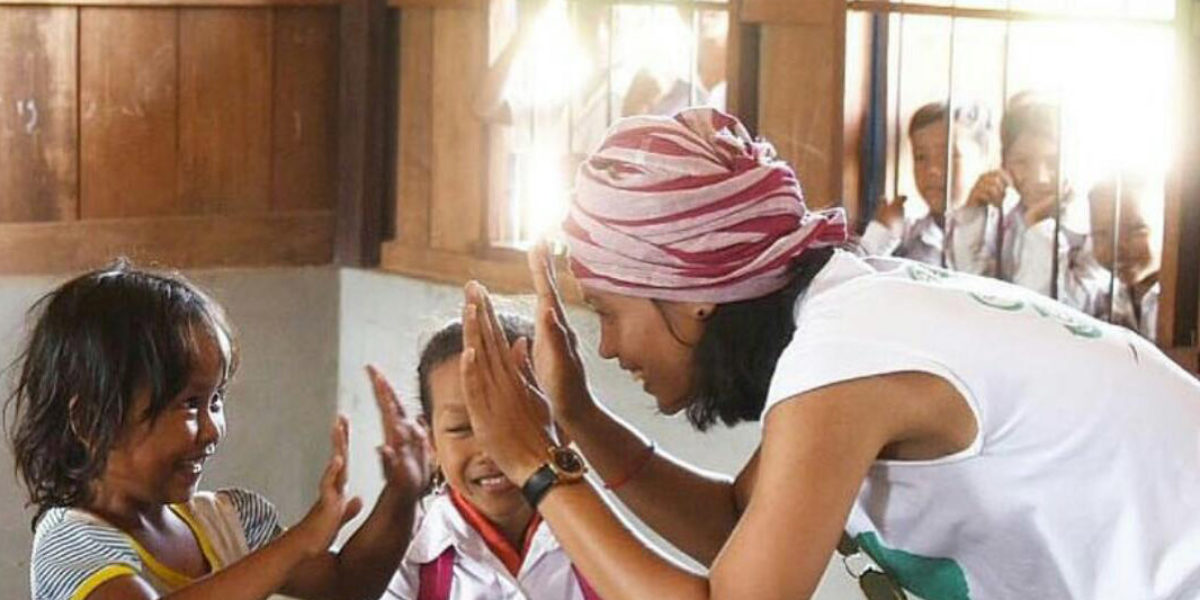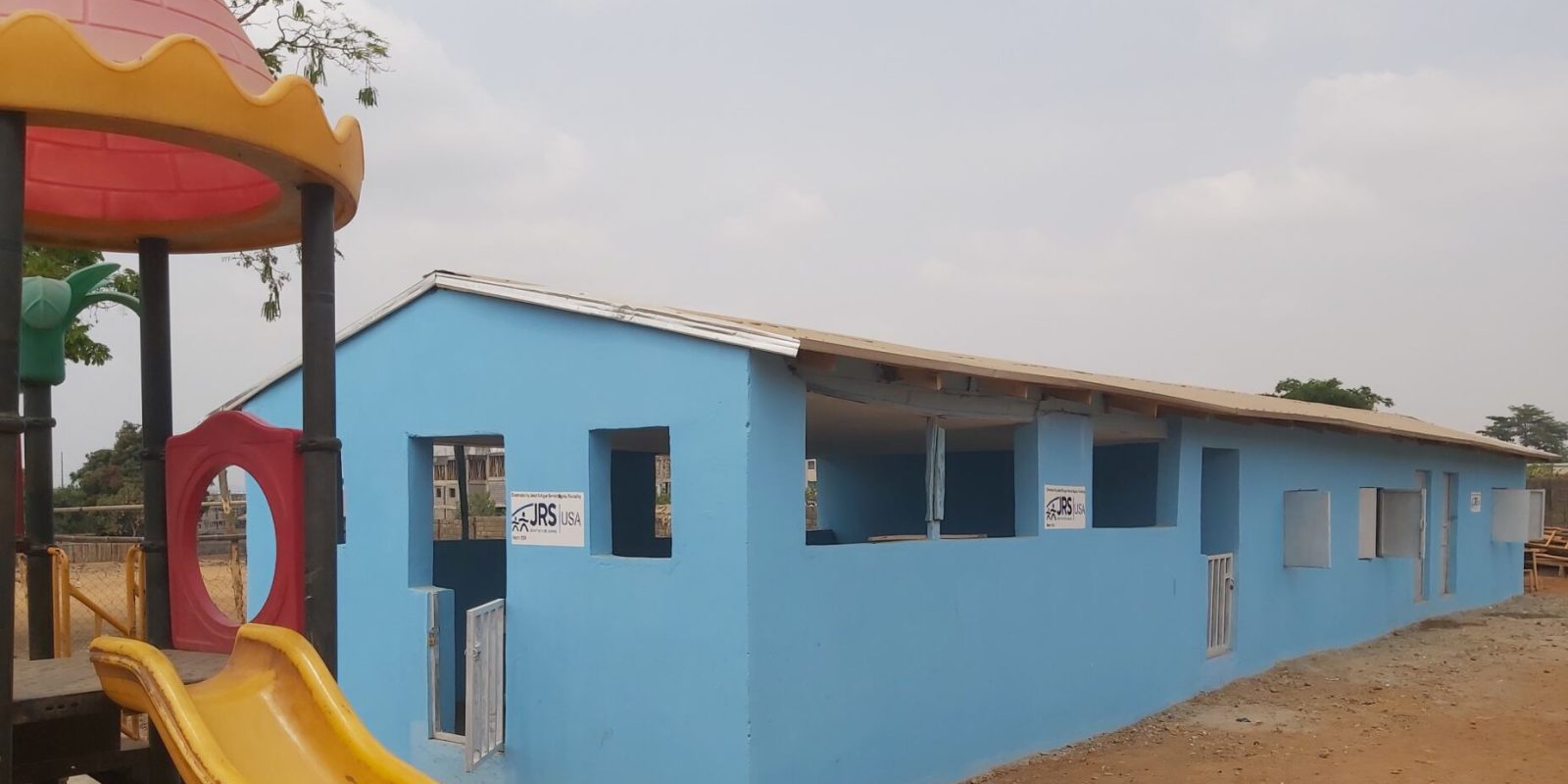Cambodia: Creating Change Through Education
15 November 2016|Amaya Valcarcel, Jesuit Refugee Service Advocacy Officer

Srey Puth is a young and dynamic Cambodian woman. She was born in the late eighties in a refugee camp at the Thai-Cambodia border. During that time war ravaged the region. Armed groups planted the earth with landmines and cluster bombs all over the country.
Srey Puth recalls when she went to school in the Site Two camp: “When I was a child, my memories of the camp school were of a tiny and beautiful hut made from bamboo and full of students sitting on the floor studying, singing and dancing happily. Sometimes there were bombs dropped close to our school, and I remembered my mother came running to look for us. I started classes from kindergarten until I finished primary school. I was very happy with my school, friends and teachers in the camp.”
Together with her many friends, Srey Puth learned traditional Cambodian dance, and became an expert dancer. Years later, she would travel around the world performing Khmer dances. “I feel very lucky to have had the chance of meeting other people, traveling around the world, and getting to understand how big and global it is. I have been in Italy, Spain, France, and Singapore. Australia was the last country I’ve been to this year. While I was there, I shared a testimony about my work.”
In the early nineties, refugees from the camp at the border started going back to Cambodia. Srey Puth went back to her country when she was nine years old. Her new house was very close to Banteay Prieb, the JRS center for landmine survivors, in the outskirts of Phnom Penh. Cambodia was very poor due to the long war and had to be rebuilt from scratch. “I remember feeling both excitement and sadness at the same time about going back. My mother used to tell us how beautiful our country was before the war but when we returned to Cambodia it did not look like the way she described it.”
Srey Puth is a Buddhist that works in connection to JRS for the Catholic Church, in the Diocese of Battambang. She coordinates an education program in the remote areas of the Northwest of Cambodia, in villages that cannot be found on the map and where the Government is not present. In these isolated areas, the Church has been creating relationships of trust and developing many educational and agricultural projects throughout the years. “Our role is to support and motivate teachers and students, building relationships with the community through teacher training programs. We also build schools and provide educational materials.”
Encouragement and support to families is vital in order to keep education as a priority for their children. With so many difficulties and barriers in Cambodia, both economic and social, families focus on their short term needs. Education is not a priority when serious socio-economic challenges exist. The growth in the economy is very fast but education is not moving as quickly, so the challenge is how to create structures which can support education.
Another need is to re-shape the role of the teacher, not as a state servant or a volunteer but as an actor towards positive change in the society and as a leader of the community. There is a need to bring dignity to the teacher in order to put the school in the right place. There not only needs to be changes to the content and curriculum but also new innovative ways of teaching. Children here are very smart and eager to learn, but they need to be taught in creative ways so that they can reach their highest potential.
When asked about what the value of education means for her, Srey Puth explains: “This is the most valuable and useful job I could ever imagine. Every time I visit schools I meet those little students and they remind me of myself when I was just like one of them in the camp. I am learning a lot from them and understand how important our presence is to them. I am so happy to be a part of this work.”
When asked about current conflicts in places like Syria, Srey Puth reflects: “When I see destruction in Syria and elsewhere, I think of the legacy of war, which is poverty of many kinds. Leaders should be thinking of the impact war has on generations. Education will be lost for many years, landmines and cluster munition will still maim adults and children even after war ends. I would like those leaders to visit the refugees and see the consequences of their decisions.”
Srey Puth believes that education is a chance to escape poverty, to improve health and enhance opportunities. “There are a lot of things to improve in my country and I believe education can transform lives and change societies. My dream is that all the children and youth in Cambodia have access to school; that teachers feel dignity in the course of their work and that they feel they are supported by the communities and by the Government. My dream is that poverty and pressing social needs do not suffocate the need and importance of education.”



